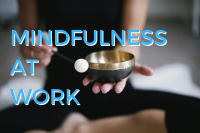If you feel inadequate or that you are likely to be “found out” at work, you’re probably not alone. It’s part of a phenomenon called the “impostor syndrome” and it’s very common.
The Women In Risk Management event in Sydney took place this week and the topic arose, surprisingly 80% of the established speakers and delegates could agree with encountering the syndrome at some point in their careers. Imposter Syndrome is a term coined in 1978 referring to high-achieving individuals marked by an inability to internalize their accomplishments and a persistent fear of being exposed as a “fraud”.
Some of the most successful people in history have suffered from secret fear that they’re terrible at their jobs. “I am not a writer. I’ve been fooling myself and other people,” John Steinbeck wrote in his diary in 1938. “I always feel like something of an impostor. I don’t know what I’m doing,” echoed actress Jodie Foster, speaking at a 2007 Women in Entertainment Power 100 event where she was the guest of honor.
It’s estimated that 70% of people have imposter syndrome, feeling that they don’t deserve to be where they are in life. Author Frances Hardinge won the 2015 Costa Book of the Year Award for her novel The Lie Tree – but still, she says, with every new project, there’s a “part of my brain that tells me that this is the book… where I disappoint everybody, and people see me for the fraud I am.”
The underlying fear, says artist and musician Amanda Palmer, “is that someone’s going to come knocking at the door. “I call these fictional people the Fraud Police, and they’re just going to tell you: ‘We figured it out, and we’re taking it all away.’”
It’s long been noted that women seem to experience impostorism more frequently and acutely than men, probably because of pre-existing sexist stereotypes that call their professional competence into question. Also, according to impostorism expert Dr Valerie Young, women are more likely to explain setbacks and failures as resulting from their lack of ability, while men are more prone to blame outside factors.
Despite often overwhelming evidence of their abilities, impostors dismiss them as merely a matter of luck, timing, outside help, charm – even computer error. Perhaps the most frustrating irony is that getting better at your job won’t make the phenomenon go away. The more knowledge you acquire, the higher corporate levels you reach, the more likely you are to find yourself in new terrain – and therefore feeling like you’re winging it.
The ultimate explanation for the impostor phenomenon lies in a fundamental fact about the human mind: we only know what’s going on inside our own heads. We hear our own constant monologue of self-doubt, but never anyone else’s – making it all too easy to assume that nobody else has one. As the saying goes, we “compare our insides with other people’s outsides”, and judge ourselves lacking as a consequence.

It’s a problem rendered more acute by social media, which encourages us to present to the world a “highlights reel” of our lives, rather than the messy psychological reality. Yet if it’s terrifying to feel like the only fraud in your field or organisation, it’s equally terrifying to confront the truth that everyone is winging it. That’s another reason why it can be hard to accept that the impostor phenomenon is universal: we desperately want to believe that there are grown-ups in control – especially in fields such as government, medicine or law.
In some sense, it’s actually more reassuring to believe that a sinister cabal is manipulating the course of history than that they aren’t: that way, at least someone would be indisputably in charge.
If you’re sufficiently self-aware to worry that you might be a fraud… you may well not be.
Is there any hope of escaping these ever-present feelings of fraudulence?
Talking openly about the problem is a start, says Dr Valerie Young; senior employees can help by being honest with more junior ones. But it’s also a matter of “changing your thoughts, slowly over time”, and taking risks in spite of the inner voice telling you you’ll fail. “Do the thing that scares you the most, realise you survived – or maybe you fell flat on your face. But you gave it your best shot.”









Leave A Comment